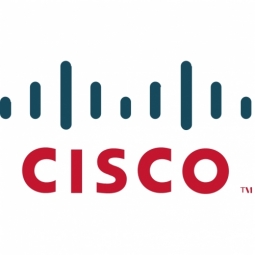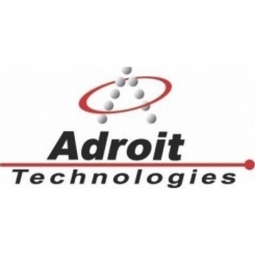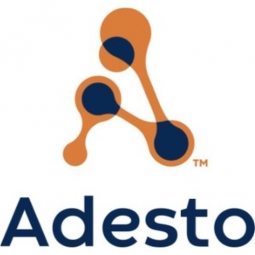Case Studies.
Add Case Study
Our Case Study database tracks 18,927 case studies in the global enterprise technology ecosystem.
Filters allow you to explore case studies quickly and efficiently.
Download Excel
Filters
-
(4)
- (3)
- (3)
- (2)
- View all
-
(4)
- (4)
- (1)
- (1)
-
(2)
- (1)
- (1)
-
(2)
- (2)
-
(2)
- (2)
- View all 7 Technologies
- (2)
- (2)
- (1)
- (1)
- (1)
- View all 5 Industries
- (4)
- (1)
- (1)
- (1)
- (4)
- (1)
- (1)
- (1)
- (1)
- View all 5 Use Cases
- (3)
- (1)
- (1)
- (1)
- (1)
- View all 5 Suppliers
Selected Filters

|
Intelligent Building Automation System and Energy Saving Solution
One of the most difficult problems facing the world is conserving energy in buildings. However, it is not easy to have a cost-effective solution to reduce energy usage in a building. One solution for saving energy is to implement an intelligent building automation system (BAS) which can be controlled according to its schedule. In Indonesia a large university with a five floor building and 22 classrooms wanted to save the amount of energy being used.
|
|

|
Cisco Connected Real Estate for Healthcare
Today's healthcare providers face a daunting challenge: sustaining or improving patient care levels despite shortages of clinicians and nurses, increasing competition, and financial pressure.
|
|

|
Improving Building Comfort and Energy Savings
During the energy crisis of the 1970’s there was a sea-change in the building industry when it paid more attention to the idea of conserving energy and introduced the terms Building Management System (BMS) and Building Automation System (BAS). Continuing rising energy prices and carbonreduction issues have also further spurred the development and deployment of BMS in recent years. However, the early systems were bulky, not user friendly, unreliable, and very expensive. With the advent of computerization, BMS analog signals became digitized so as to be communicated over long distance as well as facilitating the building management process these issues became less.Due to the multiple many management functions and wide range of expertise, modern BMS is quite complex. Successful building management not only needs to link to a multitude of devices but also take account of the suitability of the software for the intended application. Equipped with a web browser-based software package for human-machine interfaces (HMI) and supervisory control and data acquisition (SCADA) which provides automated, centralized and unattended management with a high degree of electronic accuracy, the BMS can fully control the building’s mechanical and electrical equipments and thus effectively monitor energy consumption so that it provides a comfortable, safe and secure environment.Property management is facing various and complex challenges and reducing operating costs have become increasingly important for building owners. As a result, a growing number of new and refitted buildings are being designed to use less energy and focus on the building’s performance. A System Integrator was helping a builder implement advanced BMS for its newest construction project in a creative park in Asia. The construction, a 14-storey building with four underground floors, covers an area of nearly one hundred thousand square meters and contains three distinct sectors - shopping mall, hotel guest room floors and office floors. In order to provide optimal energy management, this BMS needed to be capable of monitoring and controlling a variety of facilities, including air conditioning, power system, plumbing system, fire system, ventilation, elevator, lighting, garden watering and so on. Meanwhile, using one system with an adequate number of nodes in a main control room to manage three different places was a key requirement but each place had to have their own dedicated system and can be controlled independently without mutual interference so as to saving the implementation costs. Due to the need to monitor many areas, there would be tens of thousands of detection points, and the new system also needed to offer remote control capabilities so that building managers or patrol staff can view the status of various facilities in real-time and deal with issues using handheld or mobile devices.
|
|

|
Convenience Store Energy Saving Application
Since electricity costs keep on rising, the bills for convenience stores keep on increasing and unfortunately it’s difficult for convenience stores to raise their prices to maintain the same profit margins. Variable overheads are difficult to budget for and give accountants a headache, therefore one convenience store chain in Thailand has decided to redress the balance and put themselves in chargeof power generation by installing solar panels in their stores.Our customer wanted to reduce their energy costs by at least 10 percent and having installed solar panels in their store locations they needed to be able to send the power to where it was needed and when it was needed. Since the stores are open for 24 hours and it’s onlysunny forroughly 12 of those, it was essential that the power distribution to the lighting and refrigeration units was managed efficiently.
|
|

|
Star Refrigeration
Star Refrigeration’s TELSTAR control system uses the LonWorks® network. This fieldbus network has become the standard for the building management industry, which encompasses refrigeration and air conditioning. Star’s Electronic Systems Manager and Senior Development Engineers needed to source a SCADA HMI which would fulfil their data acquisition and monitoring requirements and match their networking needs. The ability to fit into LonWorks was a key requirement for the project. Adroit adopted a close, co-operative approach and adapted their SCADA HMI by writing a comprehensive interface to the LonWorks network. The Adroit SCADA HMI monitors data and performance of industrial refrigeration plants manufactured and installed by Star. In addition, the system provides an operator interface for altering plant control, with appropriate levels of security, using the TELSTAR system. The software is now the main data monitoring operator interface for TELSTAR, and is used in applications ranging from ice rinks and air conditioning to pharmaceuticals, distilling, fish processing and food storage. Star’s Development Engineers received training from Adroit, attending Adroit 2 + 1, a fast track course designed for system integrators and experienced end users, and the Adroit Advanced course. Star Refrigeration staff are now able to carry out their own in-house Adroit training for operators.
|
|

|
Turning Kitchens Greener and more Efficient with Building Automation
Fast food chains like McDonald's seek to manage labor and energy costs along multiple nodes of their supply chain. One place where all the challenges of running these restaurants converge is the kitchen. In fact, the kitchen is the ideal place where energy can be saved, monitored and improved. The toughest part about effecting changes in the kitchen though is the fact that these buildings are often old and difficult to upgrade.
|
|

|
Automated Headcounts Brings Security for Ferrero
Accounting for more than 1200 personnel, as well as visitors, at any given time is an arduous task, and even harder in the chaotic environment of an emergency. Every second counts when it comes to the safe evacuation of individuals in such events.Ferrero needed a way to confirm that all its employees could be safely accounted when an emergency evacuation was underway. The manual method had gotten out of date -- tracking each individual through manual counting was time-consuming and introduced potential for errors. Even if all personnel appeared at the dedicated mustering points, the employee roster for any given day could not be accurately obtained, especially when visitors were also in the building.Ferrero takes safety for these employees seriously and was recently seeing a solution that leveraged the latest that technology has to offer. The company’s internal audit system requires employee headcounts fast. After all, seconds can be critical when an emergency takes place and people need to be accounted for.
|
|

